TL;DR: there’s no need to boycott animal cafes entirely!
Animal cafes have been sprouting around Asia in recent years and they’ve grown in immense popularity. From cats and dogs to unique cafes with owls, hedgehogs and miniature pigs, anything is pet-able these days.
I’ve always loved visiting these cafes when I travel, but it hurts to know that some of them abuse their animals. I’ve read so many horror stories, both local and overseas, that I completely avoided animal cafes on my last trip to Japan. No matter how adorable the Shiba Inus looked, I couldn’t bear potentially harming them.
To find out more, we jumped on a Zoom call with Dr Jaipal Singh Gill, Executive Director of SPCA, who taught us how to tell the difference between unethical animals cafes and those worthy of our support.

The Travel Interns, Therese and myself, visibly amused by Dr Jaipal’s cute background.
Run through these 10 red flags before your next pet cafe visit!
1) The animal cafe has bad reviews
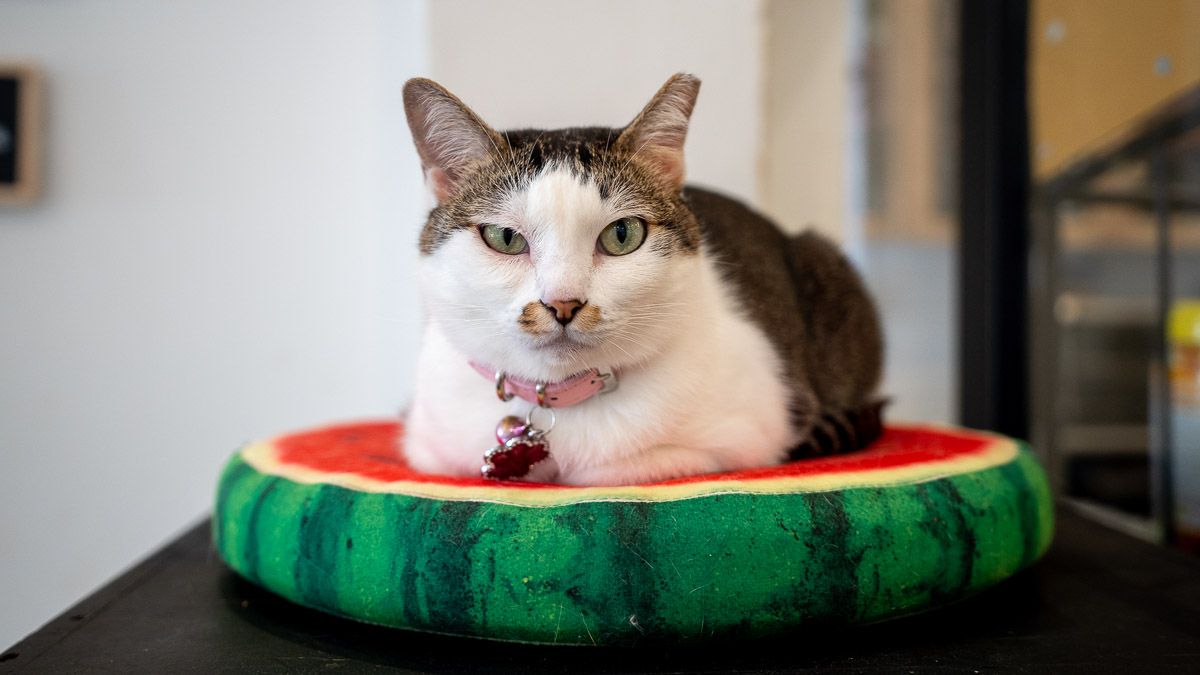
Before anything else, do a simple search on Google, Facebook or Tripadvisor for some reviews. It’s one of the fastest and easiest ways to find out about the customer experience.
Dr Jaipal says we should be extremely cautious with animal cafes — and any business that deals with animals for that matter. Look out for points regarding a messy environment or ungroomed and unfriendly animals. These may seem like minor things but are often signs of neglect (more on this later).
By doing our research and being careful with who we support, we can build a better future for our furry friends!
Read also: The Truth Behind Elephant Cruelty — Elephant Riding in Thailand
2) The cafe has exotic animals
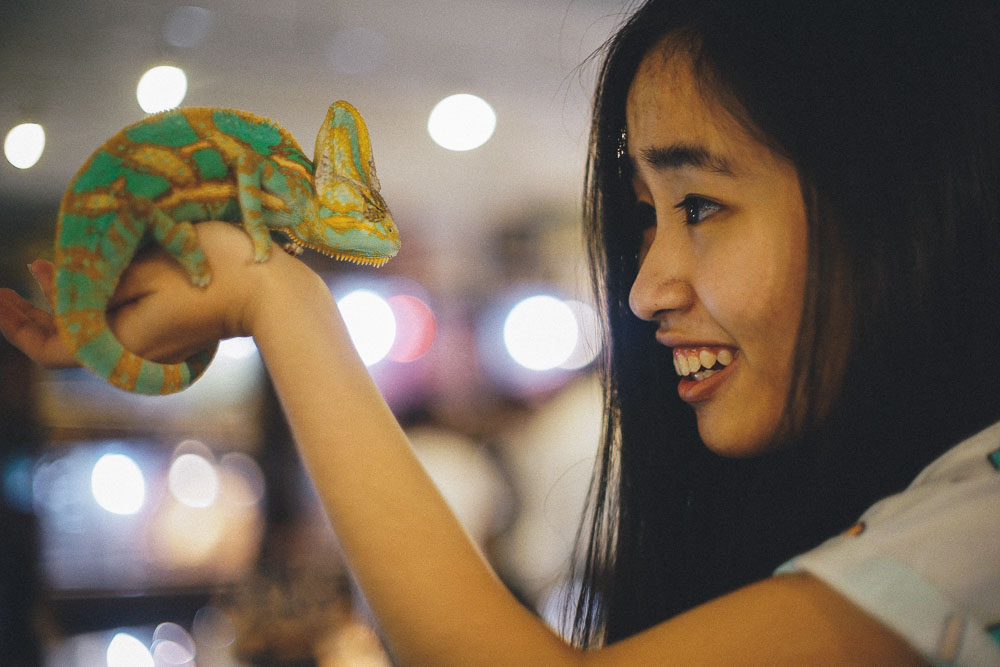
This is probably the biggest red flag. It’s tempting to jump at the rare opportunity of getting close to these exotic animals and honestly, we’re guilty of it too.
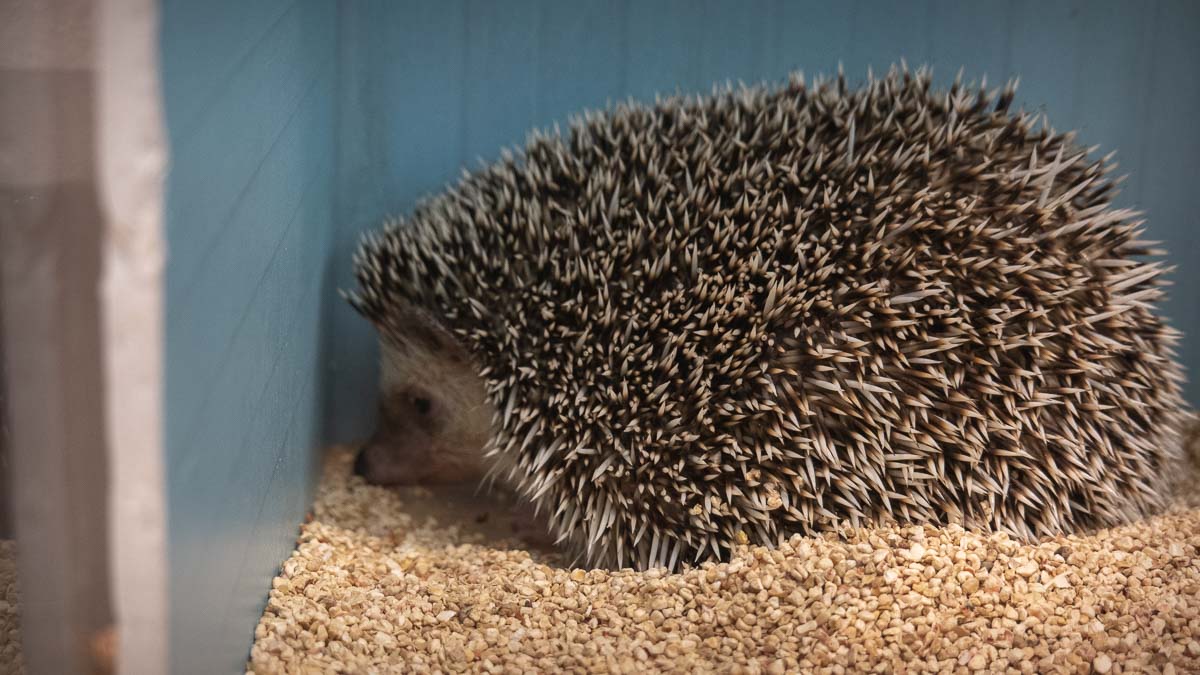
We totally regretted it when we visited a hedgehog cafe in Okinawa. The hedgehogs were all sleeping (they’re nocturnal), and those that were awake would hide in the corners of their plastic containers, scratching at the walls to try and get away from prying hands.
Wild, undomesticated animals aren’t used to the level of human interaction in a cafe and will develop stress and a host of health issues in these environments. No matter how well-treated they seem to be, the bottom line is clear: Wild animals don’t belong in an animal cafe.
Read also: Saving the Earth on Holiday — 9 Eco-friendly Activities to Try in 2021
3) It’s unclear where the cafe got their pets from
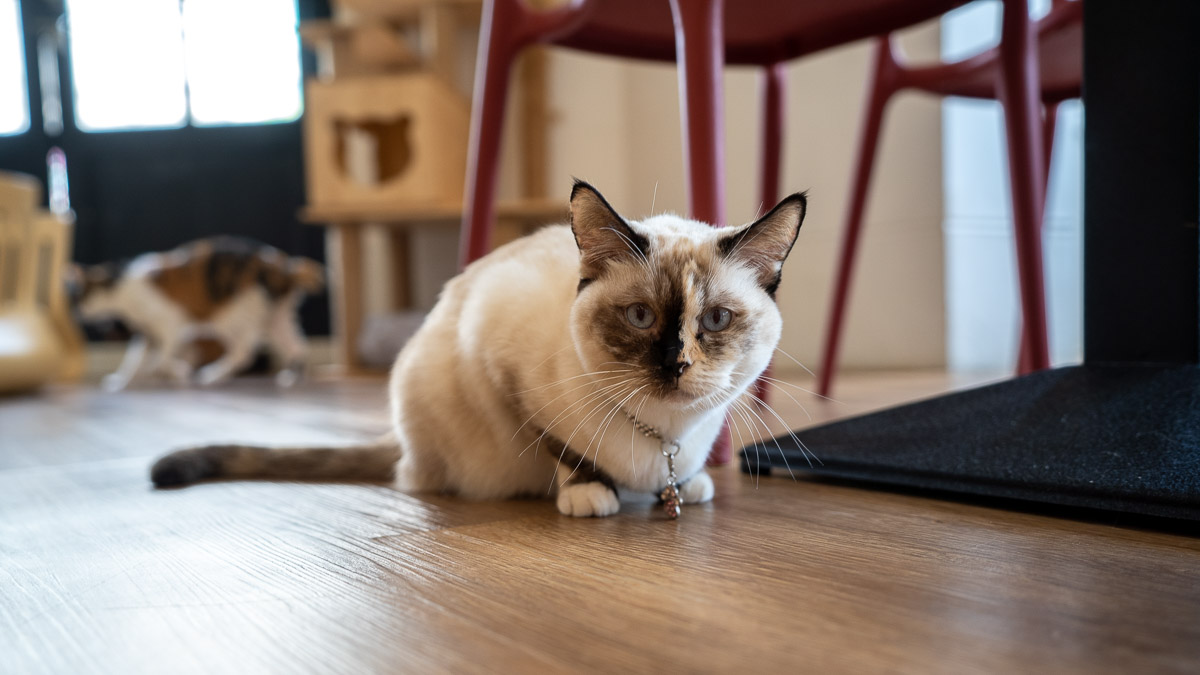
Missy was found abandoned with two other cats. You’ll now find them happily chilling in their new home, The Cat Cafe.
Before visiting a cafe, check online or give them a call to find out where their pets are from. If they’re reluctant to say or the information’s iffy, then give it a miss.
You might think this is only an issue for wild animals but it’s important for cats and dogs too! Animals specifically bred for cafes mostly come from mills or farms. These places focus purely on profits and are often in terrible, inhumane conditions.
Ideally, we want to support pet cafes with rescued and adopted animals. One place that does that in Singapore is The Cat Cafe. Their furry employees are all rescued strays who’ve found new lives in their outlets at Bugis and The Rail Mall!
*Pro-tip: Be wary of cafes that boast “pedigreed” or “purebreds”, as it’s very likely that these pets were bred in mills 🙁
4) The cafe has unsuitable pet breeds
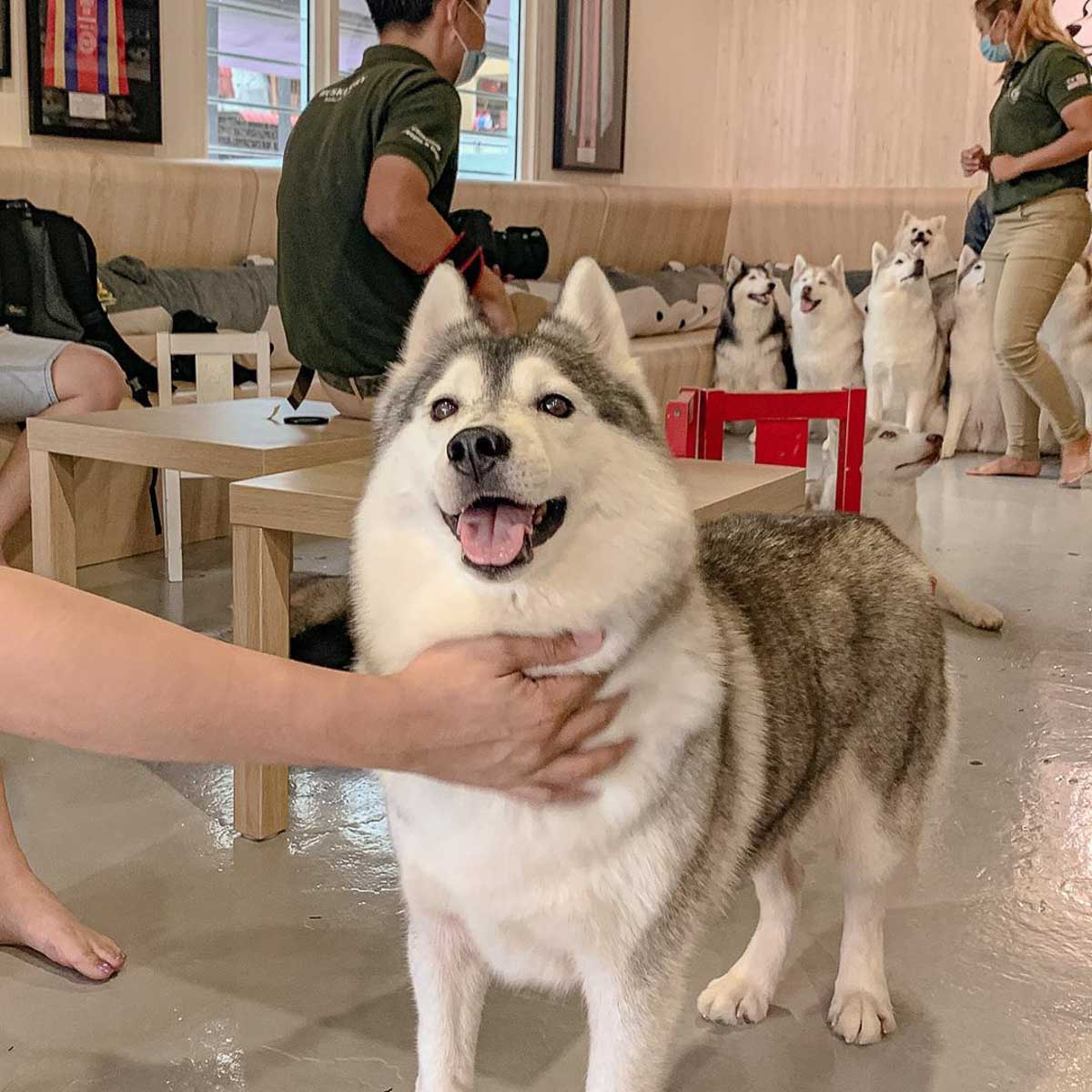
Photo credit: @jansposable via Instagram
Certain breeds of domesticated pets aren’t suited for animal cafes either.
Huskies, for example, are built for cold weather and need extra care when living in tropical climates. The hot temperatures increase their risk of dehydration, overheating, and overexertion. Because of this, a business filled with huskies may be unable to give each of them the high level of care required each day.
Other breeds like Dachshunds (sausage dogs) and Caucasian Ovcharkas also aren’t comfortable with strangers due to their temperament.
Read also: Swimming With Whale Sharks in Oslob — IG Worthy Photos at What Expense?
5) The cafe doesn’t limit the number of visitors
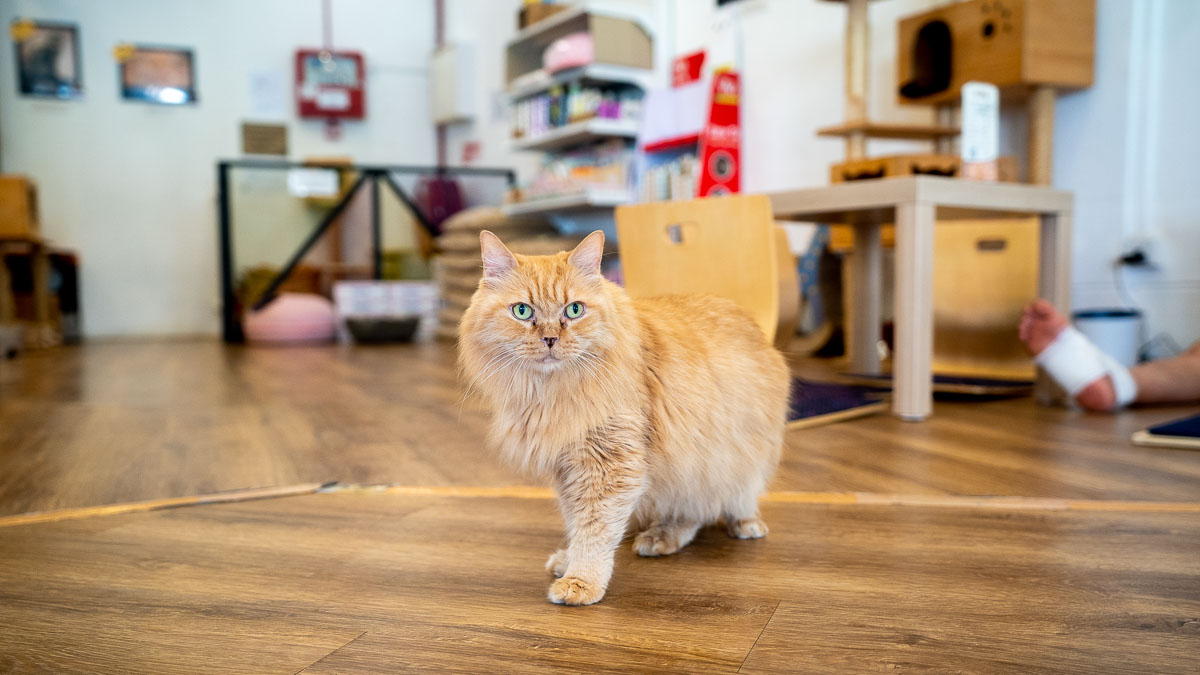
We’re not just talking about COVID restrictions. Pets have learnt to enjoy humans, but big crowds can still freak them out. Now imagine a pet cafe. With hundreds of visitors every week, each bombarding them with attention, pats, and cuddles. It’s no wonder even the most sociable pups can tire out.
Check that your cafe has rules to control the number of visitors. Some may require pre-bookings, or have a limit on the number of people allowed in.
6) The pets don’t have enough space
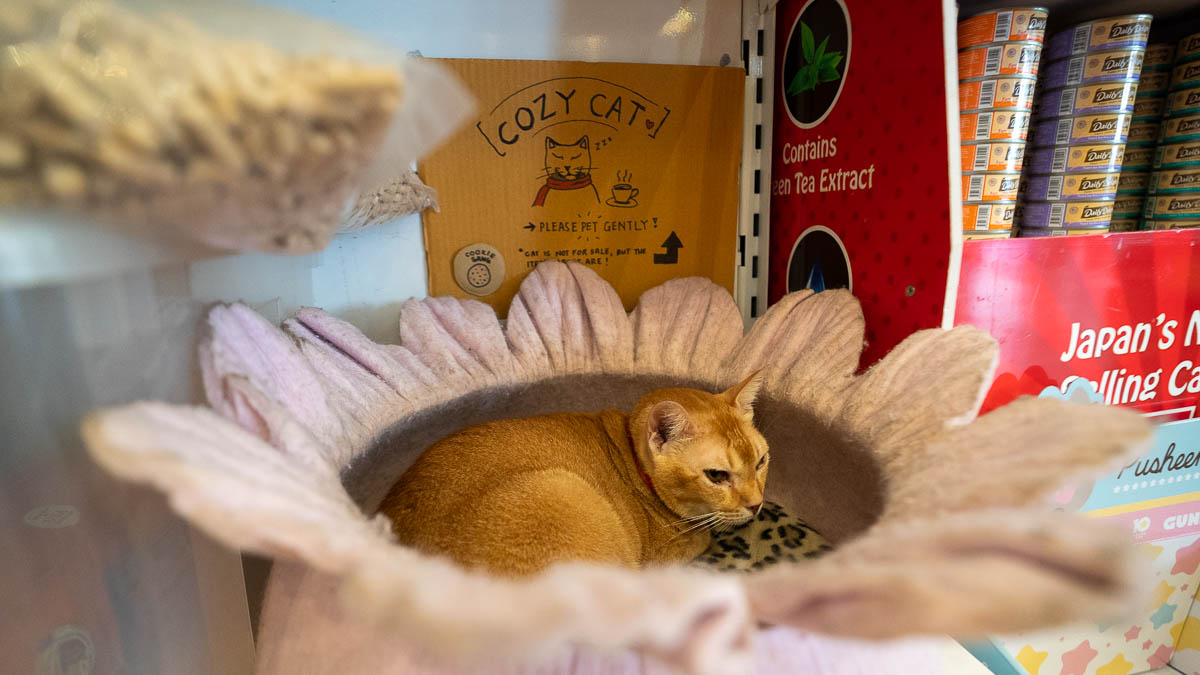
This may seem obvious but animals need ample space to run around in comfort. Yeah, pets need their personal space too. Territorial animals like cats can get especially stressed and aggressive if they’re not given enough room.
Luckily, we don’t need to be animal real estate experts. Use your best judgement to decide if a pet cafe isn’t giving its furkids enough room! I’d personally look out for whether they’re too cramped and have enough space to nap in peace.
7) The animals don’t look healthy
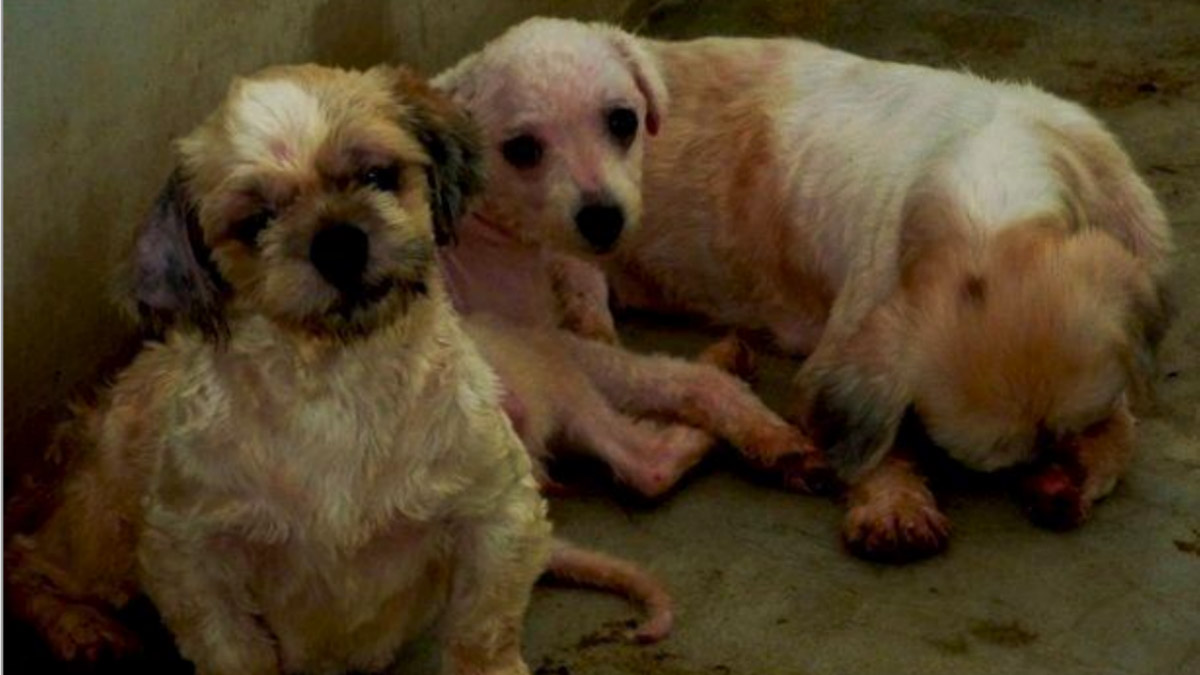
Photo Credit: Dog Mill Rehomers
Obviously, assessing a dog or cat’s health isn’t easy for the untrained traveller, but we’re still able to make some basic judgments. Ask yourself simple questions like:
– Are the animals too skinny? Can you see ribs?
– Do the pets look happy and active?
– Are they groomed well?
– Can the animals move around well?
8) The animals don’t want to play with visitors
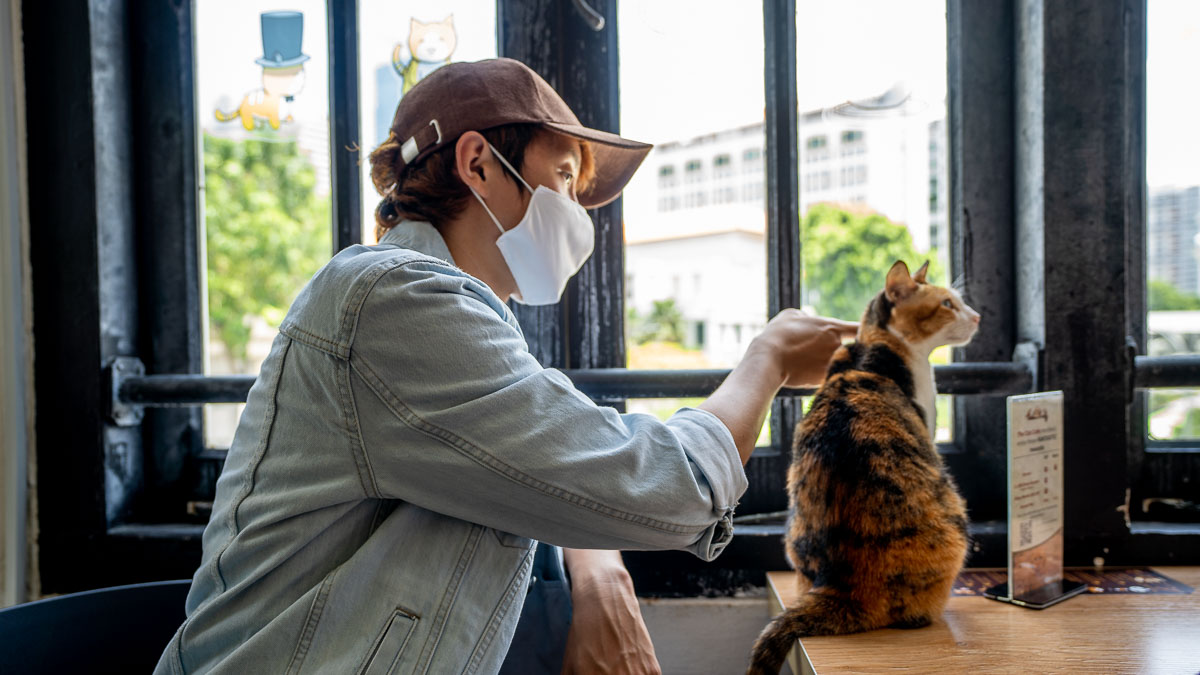
Ever been to an animal cafe expecting cuddles, but ended up begging for scraps of attention instead? Well, good news: It’s not because you’re ugly (probably). Bad news: The pets might’ve been stressed, uncomfortable, tired, or sick.
We can’t rule out a pet cafe just for this flag — the cat might’ve just not been in the mood that day. But it’s still a useful sign that tells us about their welfare.
9) The pets don’t have a private area they can go to
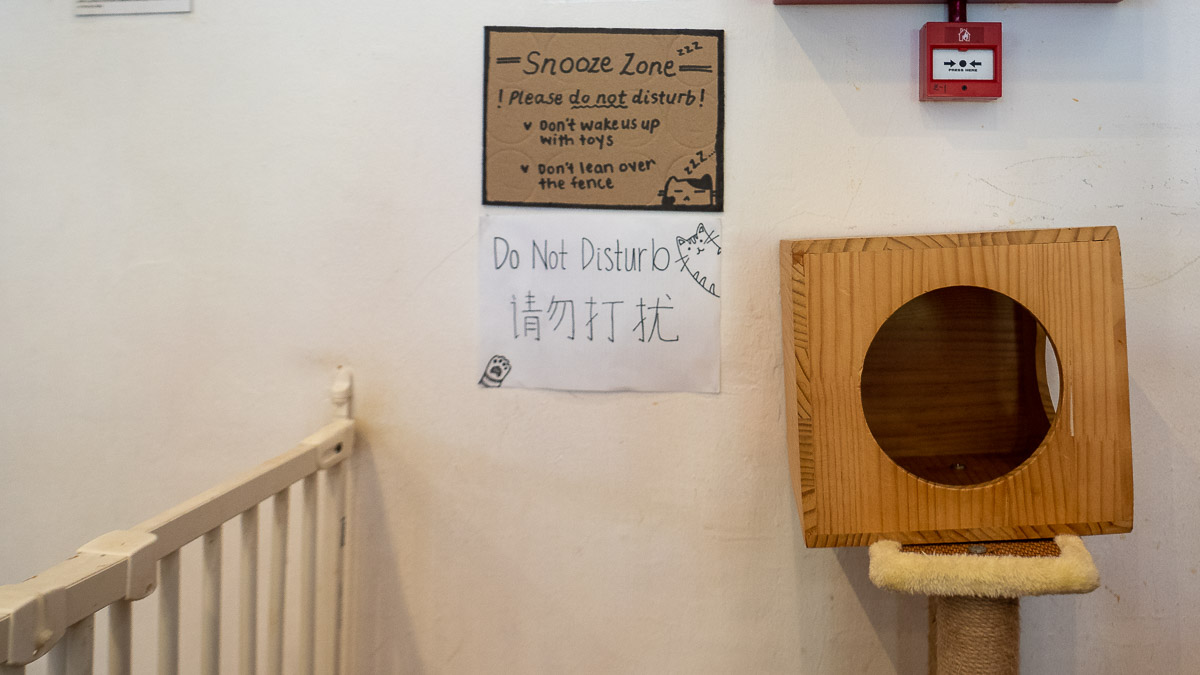
When the pets in an animal cafe don’t feel like playing with guests, they should be able to go somewhere undisturbed. This could be hidden spots within the shop or even tall hanging spaces that are out of reach from customers.
Cat Cafe Neko no Niwa, Singapore’s first cat cafe, cleverly does this with a long cat corridor. The corridor only fits cats, leading into a separate room where they can find privacy from customers and other furry colleagues.
10) The animal cafe only cares about money
In a purrfect world, all animal cafes would exist for the welfare of animals, not profit. But as you’ve probably figured out, reality’s not like that. So other than a website that screams “WE LOVE ANIMALS”, how can we find businesses that really support animal welfare?
Dr Jaipal suggests looking for experiences with educational elements to them. Rather than just a cool place to chillax, a cafe can also teach its customers about important things like rescue work, adoptions and grooming.
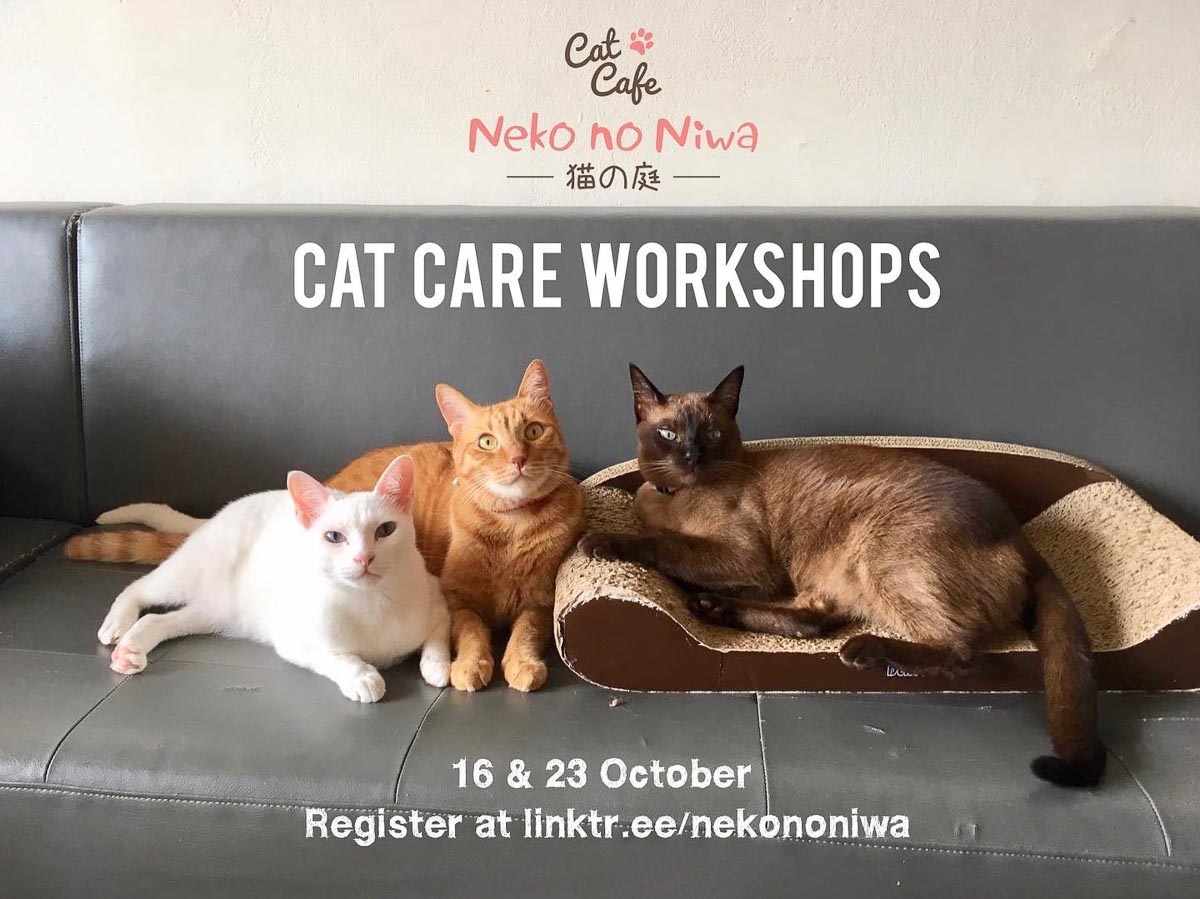
Photo credit: Cat Cafe Neko no Niwa
Back here in Singapore, the owners at Cat Cafe Neko no Niwa* even hold cat care workshops and fundraisers to support the local cat community. Pawsome!
*Update 28 Mar 2022: Cat Cafe Neko no Niwa will be ceasing operations on 1 May 2022.
Doing our part as responsible travellers
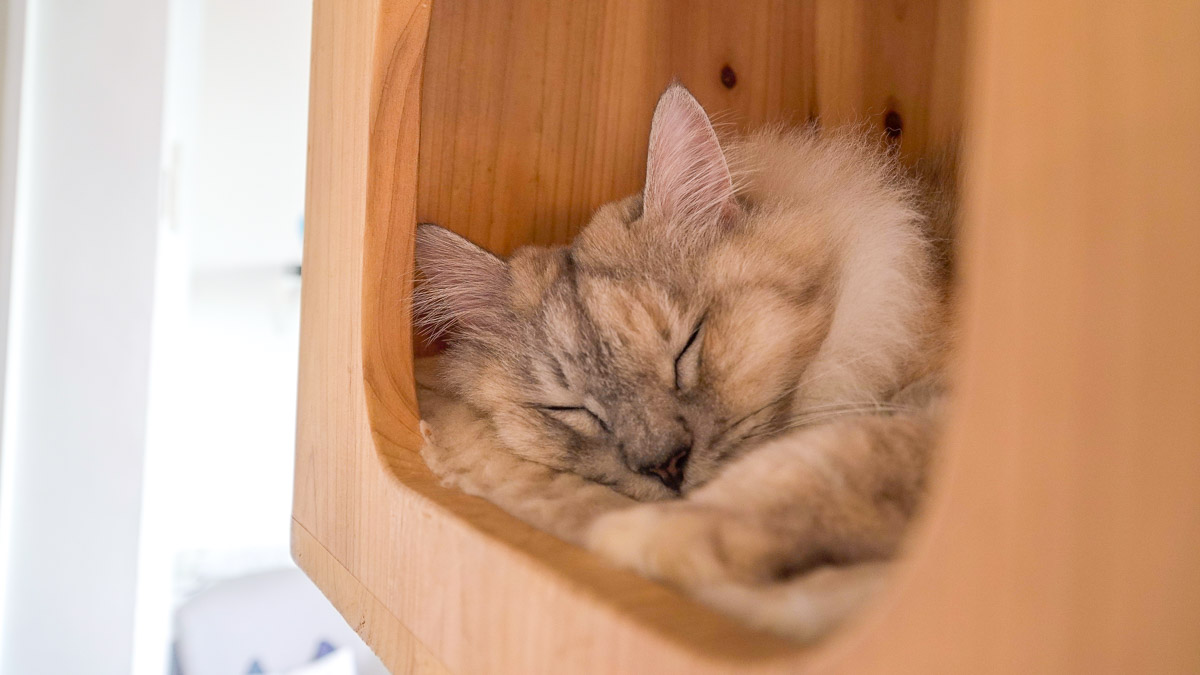
We get it. Running through a mental checklist every time you go to an animal cafe is a drag. Sometimes it’s tempting to close an eye and give the benefit of the doubt. After all, you’re on holiday. You wanna have fun — not worry about serious business.
But the truth is: our actions as travellers have deep and lasting impacts on others. With a little more sensitivity, we can make a big difference in supporting animal welfare
Read also: 5 Simple Ways To Practise Sustainable Tourism After COVID-19 Passes
If there’s one thing I’d take away from meeting with Dr Jaipal, it’s that we don’t have to completely shun all animal cafes, though we should wary and cautious!
It’s possible for ethical pet cafes to exist, where rescued animals reside with good welfare and the operators provide elements to educate the public. Next time you’re visiting an animal cafe, run through these 10 simple steps to make sure we’re supporting ethical businesses (and get all the conscience-free cuddles we want)!
Facebook cover image credit: @jansposable via Instagram, Rolling Stone
What’s your experience with animal cafes overseas? Share with us in the comments!
Huge thanks to Dr. Jaipal, Executive Director SPCA, without whom this article wouldn’t have been possible.








